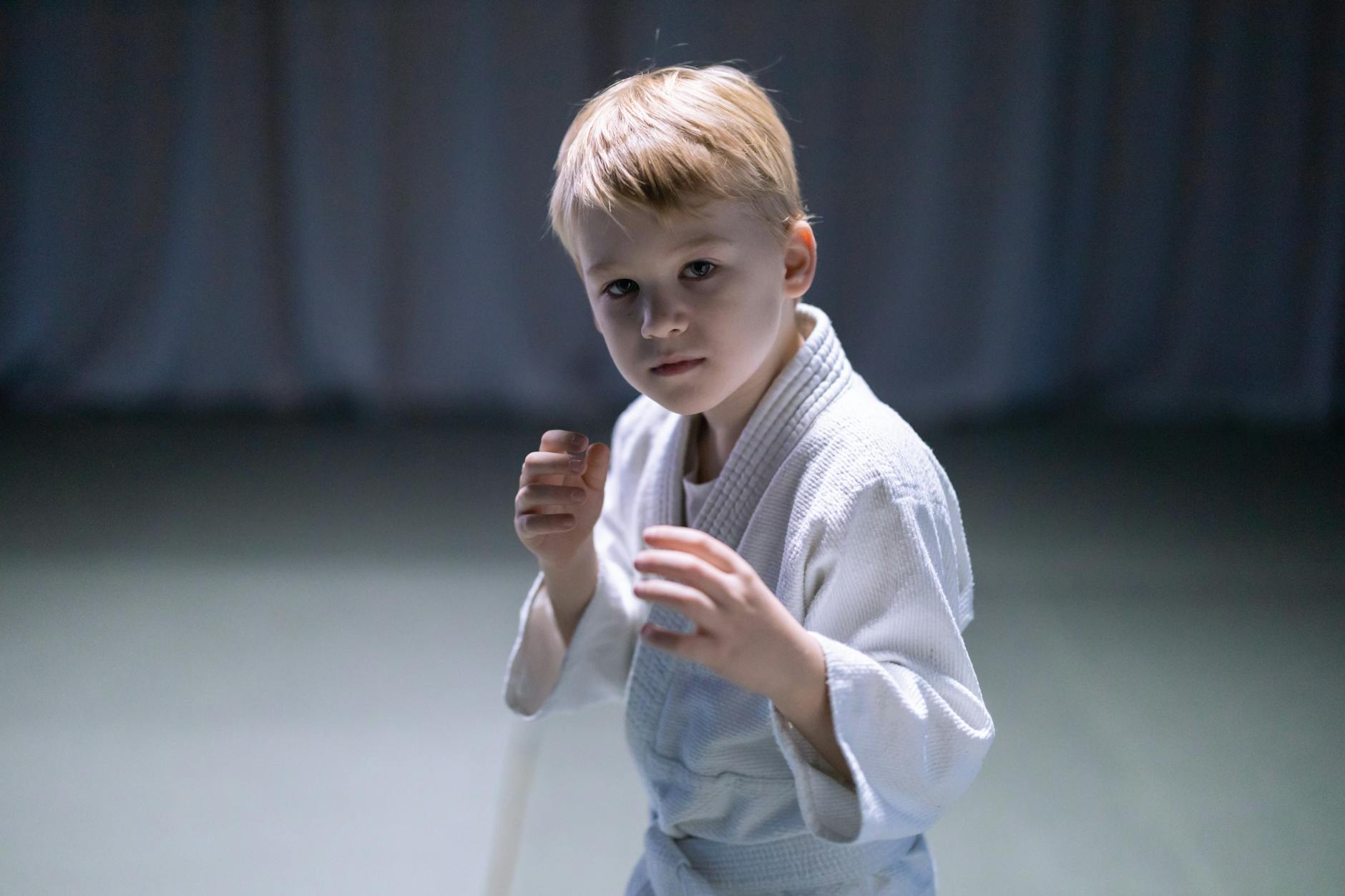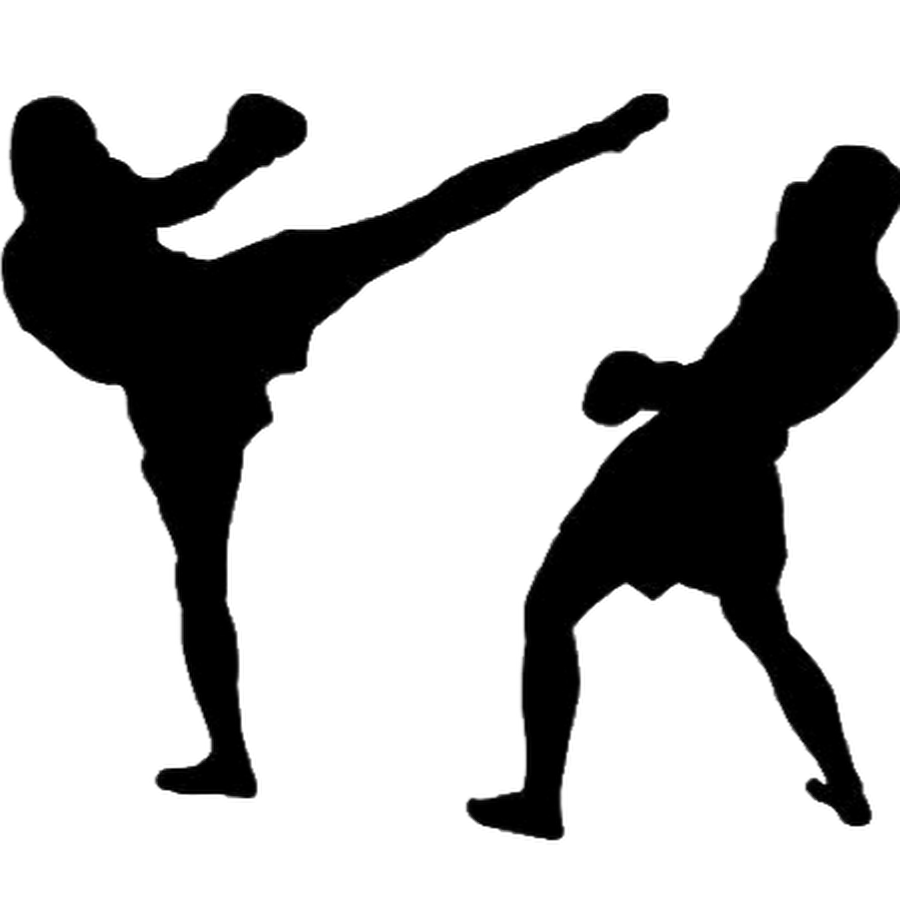Finding the right karate program for your child can feel like a big decision, but it doesn’t have to be overwhelming. Karate is more than just kicks and punches—it helps children develop physical fitness, discipline, and confidence, all while having fun. The key is choosing a program that fits your child’s unique needs and interests, from their energy level to their long-term goals. By focusing on factors like experienced instructors, a safe environment, and a supportive community, you’ll set your child up for success both on and off the mat.
Understanding Karate and Its Benefits for Children
Karate is far more than a physical activity; it’s a comprehensive discipline that helps kids grow in multiple areas of life. From improved strength to better emotional management, its influence reaches beyond the dojo and into everyday experiences. Let’s explore how karate benefits your child physically, mentally, and socially.
Physical Benefits of Karate
Karate is an engaging way for kids to stay active and healthy. Unlike traditional sports, which often focus on one aspect of fitness, karate builds total-body strength and coordination.
- Improved Fitness: Regular karate practice gets kids moving, helping them burn energy, build muscle, and stay fit. The dynamic movements—kicks, strikes, and stances—work all the major muscle groups.
- Enhanced Flexibility: Stretching exercises help children increase their range of motion, which can reduce injuries and improve performance in other physical activities.
- Refined Coordination and Balance: Learning to execute precise movements hones coordination and body awareness. Kids improve balance by practicing shifting stances and staying grounded during techniques.
These physical advantages lay the groundwork for lifelong health and functional movement.

Photo by RDNE Stock project , karate program
Mental and Emotional Benefits
Karate strengthens more than just the body; it helps kids build mental discipline and emotional stability. Through consistent practice, children gain valuable life skills that extend beyond karate lessons.
- Focus and Concentration: Each session challenges kids to stay mentally sharp. Whether learning forms or sparring, staying attentive becomes second nature.
- Self-Confidence: Mastering new techniques and achieving belt promotions shows kids the value of persistence. Every milestone builds their belief in themselves.
- Emotional Resilience: Karate teaches children to manage mistakes constructively. Controlled sparring and rigorous training create a space to embrace failure as a step toward success.
Over time, karate equips kids with the inner strength to navigate challenges both inside and outside the dojo.
Social Skills Development
Martial arts training naturally fosters a sense of belonging and community. In a group-based environment, children learn how to collaborate and connect with peers.
- Teamwork: Partner drills and group exercises require kids to cooperate and support one another. It’s about learning to win and grow together.
- Friendships: Beyond practice, relationships form through shared passion and mutual respect, giving kids new opportunities to bond with peers.
- Respect and Community: The structured environment of a dojo emphasizes respect for instructors, fellow students, and even themselves. These values create a positive, inclusive atmosphere.
By encouraging social interaction and teamwork, karate sessions become a place where children thrive socially while gaining essential interpersonal skills.
Assessing Your Child’s Needs and Goals
Choosing the right karate program for your child begins with understanding their unique needs and aspirations. Every child approaches martial arts with different goals, whether they’re eager to try something new, improve their self-discipline, or simply burn off energy in a fun and structured way. By assessing their interests and abilities upfront, you lay the foundation for a fulfilling and enriching experience.
Identifying Interests and Motivation
Start by asking yourself: What drives your child to try karate? Understanding their motivation will help you identify the type of program that will keep them engaged. Here are some common reasons kids get involved:
- Self-Defense: Many children are interested in learning how to protect themselves. If this resonates with your child, look for programs emphasizing practical and age-appropriate techniques.
- Improved Fitness: Some kids love the idea of an active class where they can move, jump, and challenge themselves physically.
- Building Confidence: Karate thrives on personal progress. Children seeking a self-esteem boost will benefit from programs that recognize small milestones along their journey.
- New Friendships: Group-based activities help children bond with peers while practicing teamwork and respect.
Understanding your child’s reasons for joining karate will help you select an environment and instructor that meet their specific interests and personality.

Photo by RDNE Stock project , karate program
Understanding Age and Skill Level
Karate classes are often categorized by age and experience, ensuring children learn at a pace suited to their development. It’s vital to choose a program that fits your child’s current stage, providing an opportunity for growth without being frustrated by overly challenging material.
Karate Program For younger kids (ages 3–6):
- Focus programs on foundational skills: listening, cooperation, and motor coordination.
- Look for activities like obstacle courses and beginner katas tailored to short attention spans.
Karate Program For older kids and beginners:
- Select a curriculum that gradually introduces forms, sparring, and self-discipline. These students benefit from well-structured classes with consistent rewards like belt advancements.
For advanced or athletic children:
- Explore programs emphasizing technical mastery, leadership opportunities, or competition preparation. This can keep them engaged while pushing their skill boundaries.
Matching your child’s age and experience to the right program is like fitting the correct gear in a bike—it ensures smooth progress and enjoyment.
Setting Realistic Goals
Help your child succeed by setting clear and achievable goals together. Here are a few tips for creating a positive outlook:
- Start Small: Avoid overwhelming your child with big expectations. For example, aim for regular attendance or mastering basic techniques before eyeing the next belt level.
- Focus on Progress, Not Perfection: Remind your child that consistent effort outweighs the need to “get it right” every time.
- Celebrate Milestones: Whether it’s performing their first kata or breaking their first board, taking time to recognize their accomplishments reinforces their motivation.
- Think Long-Term, But Stay Flexible: It’s great to dream big—like earning a black belt—but remain supportive if your child’s enthusiasm shifts along the way.
By setting practical goals that grow as your child progresses, you foster resilience and a sense of pride, making their karate journey as rewarding as possible.
Evaluating Karate Schools and Instructors
Choosing the right karate program for your child goes beyond finding a school nearby or one with good reviews. It’s about ensuring their learning environment is safe, enriching, and conducive to personal growth. To guarantee you’re making the best choice, pay attention to the school’s credentials, observe classes firsthand, and learn more about the instructors. Below are detailed ways to evaluate each aspect.
Researching School Credentials
Before enrolling, take time to verify the school’s legitimacy and reputation. A karate dojo isn’t just a place to learn martial arts—it’s where your child will build skills, confidence, and friendships. Here’s how you can check its credentials:
- Certifications and Affiliations: Look for schools accredited by recognized organizations like USA Karate or the World Karate Federation (WKF). These affiliations often ensure adherence to high teaching and safety standards.
- Reputation Matters: Read online reviews on platforms such as Google or Facebook to get an idea of what other parents and students are saying. Additionally, ask local community groups for recommendations.
- Structured Curriculum: A reputable karate school will have a well-defined syllabus that teaches techniques progressively, adapting to students’ age and skill level while preparing them for belt advancements.
These steps help you confirm not just the professionalism and expertise of the school but also its commitment to providing a high-quality martial arts education.
Observing Class Structure and Environment
Visiting a dojo in-person offers insight into how the school operates. By observing a class, you can evaluate critical aspects that aren’t always evident from a website or brochure. Here’s what to look for:
- Cleanliness: The training space should be clean, well-lit, and organized. Mats and equipment should be in good condition to reduce the risk of injury.
- Class Sizes: Smaller classes mean your child can get more personalized attention. Large, overcrowded classes might hinder an instructor’s ability to monitor student progress.
- Engaged Students: Watch how kids participate. Are they focused and having fun? A well-structured environment balances discipline and enjoyment, keeping children motivated.
- Parent Friendliness: Does the dojo allow parents to observe classes or provide updates on their child’s progress? Transparent communication and openness indicate a welcoming school.

Photo by RDNE Stock project , karate program
Learning About Instructors
Instructors play a significant role in shaping your child’s karate journey. Beyond their technical expertise, their teaching style and personality directly impact how children learn and grow. Here’s what to consider:
- Certifications and Experience: A good instructor should be highly skilled in karate and certified to teach. This includes holding a black belt and having formal training experience, particularly with children.
- Child-Friendly Approach: Teaching kids requires patience, adaptability, and the ability to make lessons engaging. Look for instructors who are approachable and use positive reinforcement rather than intimidation.
- Role Models: An instructor’s attitude sets the tone for the class. Are they fostering respect, discipline, and a supportive environment? This is crucial to your child’s personal development.
Feel free to speak with the instructor during or after your visit. They should be enthusiastic about answering your questions regarding teaching style, safety measures, and program goals. Schools with instructors who go the extra mile to build connections with students are often worth considering.
The right school and instructor can make karate a transformative experience for your child. By thoroughly researching, observing, and asking the right questions, you’re setting the stage for their success in and out of the dojo.
Key Factors to Consider
Selecting the right karate program for your child involves more than just convenience or price—it’s about creating a safe, positive, and growth-oriented environment that aligns with your family’s priorities. Let’s break this down into key areas to evaluate before making a decision.
Safety Standards and Procedures
Safety is non-negotiable when it comes to children’s karate classes. Proper safety measures go beyond preventing injuries—they build trust and confidence in the program. A safe training environment is essential for children to grow both physically and mentally.
Here’s what to look for:
- Structured Techniques: Classes should emphasize proper warm-ups, stretching, and age-appropriate training techniques to minimize risks.
- Qualified Instructors: Good instructors know how to balance enthusiasm with safety by teaching control, precision, and respect for sparring rules.
- Protective Gear: Ensure that students are required to use appropriate safety equipment, including padded mats, gloves, and mouthguards, especially during sparring sessions.
- Clear Guidelines: The school should have firm policies for conduct and a zero-tolerance approach to bullying or unsafe behavior.
By ensuring safety is treated as a priority, you can feel more confident about your child’s well-being during practice.

Photo by RDNE Stock project
Curriculum and Teaching Philosophy
The curriculum is the heartbeat of any karate program. A solid program doesn’t just teach punches and kicks—it provides a pathway for personal growth and development.
Key elements you want in a curriculum include:
- Progressive Learning: Look for programs that introduce skills in a logical, age-appropriate sequence. From basic stances and blocks to advanced katas, the journey should feel achievable and rewarding.
- Life Skills Integration: Beyond physical moves, children should be learning discipline, focus, and perseverance. A program that reinforces these core values helps kids develop holistically.
- Balance of Fun and Discipline: While structure is essential, classes should also be enjoyable. Children learn faster and stay motivated in a program that challenges them while keeping things engaging.
Programs that excel in teaching philosophy often incorporate “teachable moments” in every session, helping kids build life skills while mastering karate techniques.
Community and Values
The social environment of the dojo plays a critical role in how your child experiences karate. A supportive and inclusive community creates a positive atmosphere where kids can thrive.
Here’s why this matters:
- Positive Role Models: From instructors to senior students, everyone in the dojo should encourage mutual respect and camaraderie.
- Family-Like Culture: Schools that foster a sense of belonging help children form friendships and feel comfortable learning and growing.
- Shared Values: Look for karate schools that emphasize values like respect, humility, and teamwork, as these will shape your child’s character over time.
When the community aligns with your family’s values, every class becomes more than just a lesson—it’s an experience that contributes to your child’s overall development.
Flexibility and Affordability
Karate should fit your family’s schedule and budget without unnecessary stress. Understanding how practical logistics align with your commitments is just as important as the program’s content.
- Class Schedules: Look for programs with multiple class times or makeup options. Flexibility ensures that your child doesn’t miss out due to busy family routines.
- Affordable Options: Programs should provide transparent pricing, including uniform costs, testing fees, and additional expenses for competitions or events.
- Trial Classes: Many dojos offer free or low-cost trial classes. This is a great way to make sure the program meets your and your child’s expectations before committing.
Finding a program that’s both practical and accessible ensures your child will stay engaged without putting unnecessary stress on your family.
By weighing these key factors, you’ll be better equipped to choose a karate program that aligns with your family’s needs, helping your child flourish both on and off the mat.
Trying Out and Reviewing Feedback
When choosing the perfect karate program for your child, firsthand experience and honest feedback can be incredibly helpful. Trial classes, reviews, and ongoing evaluations are all tools to ensure your child is in the right program and thriving. Here’s how to approach these steps to make an informed choice.
Participating in Trial Classes
A trial class can be an eye-opener for both you and your child. It’s a no-pressure opportunity to see how well your child connects with the class, instructor, and overall environment. Many karate schools offer free or low-cost trial sessions, making it a convenient way to test the waters.
- Why It’s Important: Trial classes let your child experience the group dynamics and teaching style firsthand. Instead of just reading about a school’s culture, you get a front-row seat to see it in action.
- What to Look For: During the class, observe how instructors interact with the children. Do they offer clear directions and encouragement? Pay attention to the level of engagement and whether your child appears focused, comfortable, and excited.
- Ask Questions Afterward: Use this opportunity to speak with the instructor. Ask about their teaching philosophy, expectations for students, and progression structure. If trial classes aren’t advertised, don’t hesitate to ask if the dojo offers one.
Participating in a trial session isn’t just for your child—it also helps you gauge whether the program aligns with your family’s values and expectations.

Photo by cottonbro studio
Reading Testimonials and Reviews
Reviews and testimonials from other parents can serve as your guide in assessing the program’s overall quality. From online feedback to word-of-mouth, these insights provide a snapshot of the school’s strengths and areas to consider.
- Online Reviews: Check reputable platforms like Google, Yelp, or Facebook for detailed reviews. Look for mentions of instructor quality, class structure, and how the program has benefited other children. For example, phrases like “welcoming instructors” or “structured lessons” can give you a clearer picture of the school’s environment.
- Testimonials from Parents: Many schools highlight success stories on their websites. These are often curated but can still offer valuable insights about the program’s impact on confidence, focus, and fitness.
- Community Recommendations: Reach out to local parenting groups or neighbors who may have personal experience. Hearing firsthand accounts can be helpful when narrowing your options.
While it’s important to trust your instincts, reviews and testimonials offer real-world proof of how a program delivers on its promises.
Evaluating Progress and Satisfaction
Even after your child starts lessons, you should continue assessing their experience to ensure it aligns with your initial goals. Progress and satisfaction are great indicators of whether you’ve chosen the right program.
- Track Physical Improvements: Notice advancements in fitness, strength, and coordination over time. Is your child learning new techniques or demonstrating better focus and discipline?
- Assess Engagement: If your child looks forward to classes and enthusiastically shares what they’ve learned, it’s a sign that the program is resonating with them.
- Communicate Openly: Talk to your child about their experience. Are they happy with their progress? Do they feel included and supported by the instructor and classmates?
- Stay Flexible: If something doesn’t feel right—whether it’s the pace of lessons or the teaching style—don’t hesitate to speak with the school. A high-quality dojo will be receptive to feedback and willing to adapt.
By regularly evaluating your child’s growth in the program, you’ll ensure they remain motivated and enjoy their journey in karate.
Conclusion
Choosing the right karate program for your child is about balancing their needs, your family’s goals, and the opportunities a program can provide. From building confidence to improving physical fitness and social skills, karate offers lifelong benefits when taught in the right environment.
Taking the time to explore schools, assess instructors, and consider your child’s interests ensures they start on a path that’s both rewarding and enjoyable. Trial classes and open communication with instructors can provide the insight needed to make a confident decision.
By making an informed choice, you empower your child to thrive in a program that helps them grow, both on and off the mat.






